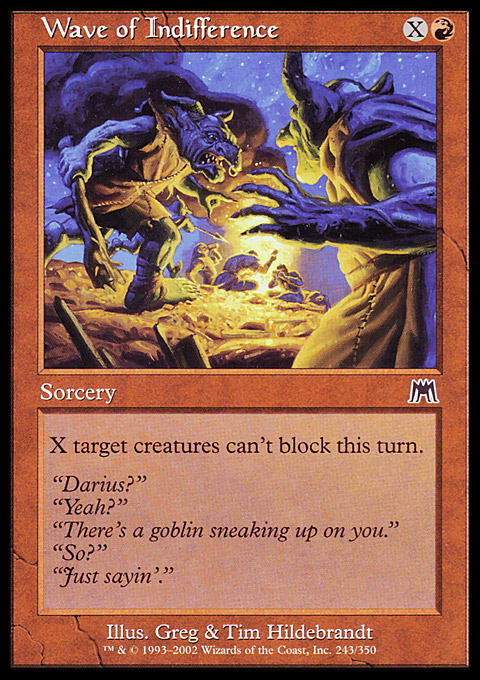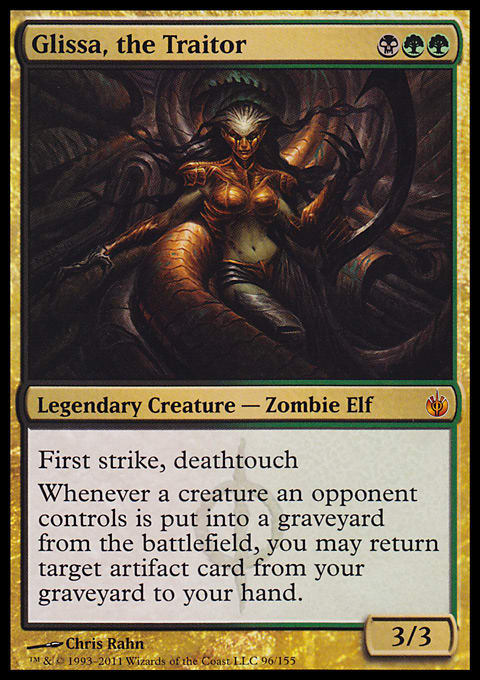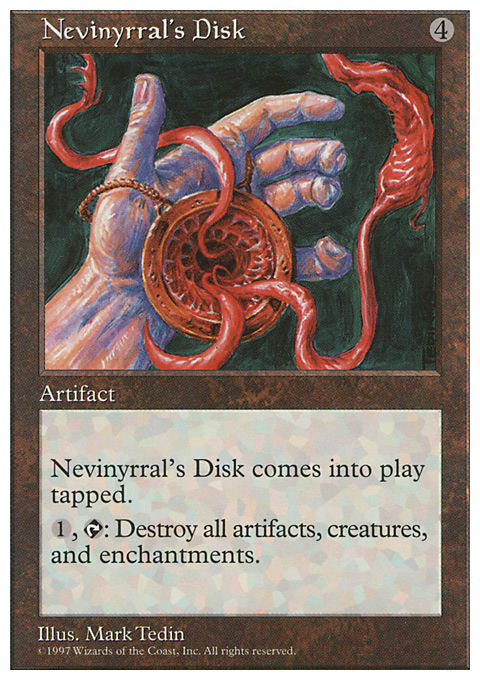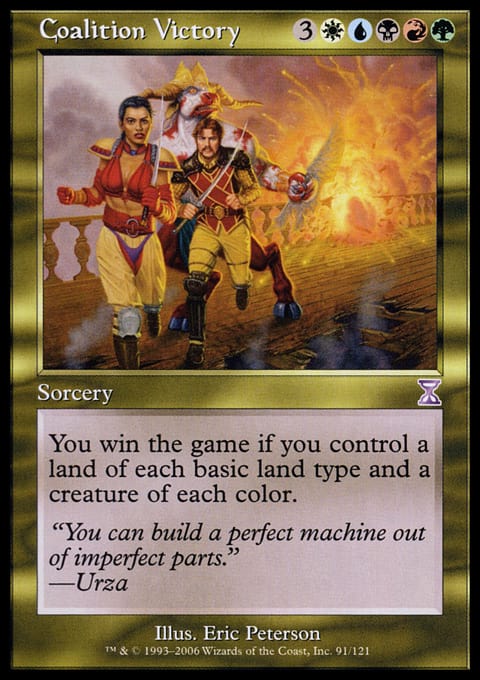Here’s the definition I use—it might not be perfect, but it’s the only comprehensive definition I’ve seen anywhere in the interwebz, so that’s where we’ll start. Strategy is about playing your cards in the way that best achieves your goals;1 politics is used in situations where you can’t get what you want without someone else’s help. In practice, I've defined multiplayer politics as either manipulating known information (which I call low politics) or manipulating hidden information (including what's in your hand, what you intend to do next turn, etc., which I call high politics) to shape the perceptions and behavior of others.2
Now that we know what we’re talking about, we can look at specific political techniques that enhance our chances of winning. Today, I’m going to focus on high politics, and we can look at low politics later.
High Politics as an Adjunct to Strategy
Let’s get something out of the way first: You can try to make every game about high politics if you want to. While everyone is still shuffling up at the start of the game, you can try to convince two of your opponents to join you in taking out the third, and then when there are only three of you left, you can try to persuade one of your opponents to ally against the other—but even if you are successful, that’s gonna get old faster than a desperate housewife. And because that kind of excessive politicking is completely unrelated to decks, threats, or board state, there’s no reason your opponents can't do the same thing to you. In the end, you might as well be playing rock-paper-scissors instead of a strategy game.
Moreover, by revealing hidden information, you are usually sharing your threat assessment with the rest of the table, which can make you vulnerable. High politics is best used sparingly. Here are the four situations where you will find it to be most effective:
Deterrence
Deterrence is a strategic concept (cf. mutually assured destruction), and in Magic it is primarily a matter of board state. If I have powerful blocker or a card like No Mercy in play, the threat is pretty clear, and it’s in your best interests (strategy!) to leave me alone. In the same way, if I choose not to target your Darksteel Colossus with my Viashino Heretic, you should realize that this is conditional on you not attacking me.3 However, there are some situations in which the cards in play aren't enough to deter an opponent, and that’s where politics comes in.
The first way that high politics can serve a strategy of deterrence is by revealing hidden information to establish deterrence—for example, I don’t have a blocker, but I could reveal a removal spell in my hand and threaten to use it against you if you attack me. That’s fairly obvious, and most of us have used this kind of technique in the past.
The second way to use politics is to draw lines in the sand—for example, saying explicitly what actions by an opponent will provoke a reaction from you. Sometimes, deterrence is unstable because your opponents don’t know where your red lines are. In those cases, revealing hidden information about your interests and intentions (i.e. politics) is an important adjunct to your basic strategy. For example, if I have Seal of Doom in play and you have a Serra Avatar, you would usually assume that I would crack the Seal and kill the Avatar if it attacks me. However, suppose there is another player whom you could attack and kill with the Avatar, but I want that player alive. My Seal of Doom only deters an attack against me; If I don’t want you to kill that player, I would have to tell you to leave him or her alone,4 which is a (high) political play.
In theory you can extend deterrence pretty far; you can announce that anything an opponent does that you don’t like will result in negative consequences. However, deterrence only works when the punishment (e.g. losing your Serra Avatar) is worse than the alternative (not attacking me or my BFF). At some point though, the alternative becomes worse than the punishment. For example, it is usually not effective to say, “If you cast any spells at all, I’ll blow up your Avatar,” because doing nothing means losing. You can't deter someone from trying to win the game, because no in-game threat is worse than losing.
Resource Conservation
Resource management is key to multiplayer survival, and a big part of this (perhaps the biggest) is saving your removal for the greatest threats. Often, this means not pulling the trigger on your removal until the opportune moment, so passing the buck can be invaluable. However, sometimes, there is a threat that is going to ruin someone’s day, but you don’t mind it as long as it hits one of your opponents. Sometimes, you can use high politics to deal with the uncertainty of the situation: Ask the threat's controller whom he or she intends to hit with the threat, and if you don’t like the answer, remove the threat preemptively.
This overlaps with deterrence to some extent because you have to reveal (or at least bluff) that you have removal in hand; sometimes the answer is, “Well, I was going to attack you, but now that I know you have an answer, I guess I’ll attack Mike.”
This technique works in some cases but not others (which is an example of the limitations of politics). For example, earlier this week, a friend of mine dropped Eldrazi Conscription on his commander, Glissa, the Traitor. Now, I was mostly sure it wasn’t coming at me, but my board state was such that I might not have been able to dig my way out of a hole if she swung at me. I did have a Wrecking Ball in hand, though, and so I knew that I would have to stop him before he declared attackers and force him to tell me whom he intended to attack. If he didn’t, I’d wreck Glissa.5
That was an example of a specific threat: The annihilate triggers and the 11 commander damage are only a problem if he attacks me, but they actually help me by weakening my other opponents if he doesn’t. On the other hand, a Lord of Extinction in a Jarad, Golgari Lich Lord deck is a completely different kind of threat—the life loss is going to hurt me no matter what. In that case, politics is useless, and I should use my removal spells to ensure that Lord of Extinction and Jarad are never on the board at the same time. Similarly, if the Maga, Traitor to Mortals player drops a major mana accelerant such as Cabal Coffers or Caged Sun, that is a threat to me because of how it will help Maga to develop, so I need to get rid of it as soon as possible.
Later in the game, the Oona, Queen of the Fae player became The Threat (meaning the clear threat to every other player at the table). If Oona had tried this political trick, she wouldn’t have been successful. Of course it’s going to attack Oona, and if Oona uses up a removal spell, that’s fine because it weakens her against other attackers. If you know it’s coming at you no matter what, politics takes a back seat, and you need to just blow things up.
For more about the dos and don’ts of buck-passing, check out here and here.
Compellence
Compellence is a tricky concept, and while it does come from strategic studies, in Magic, it often overlaps with politics. In strategic studies, compellence is usually introduced in contrast to deterrence. Everyone understands that in deterrence, I point a machine gun at you, and you leave me alone because you’re afraid of being shot. Compellence involves pointing that machine gun at you and saying, “If you don’t do what I want, I’ll shoot you in the face.”
It sounds almost the same as deterrence, but the differences are crucial. What if I want to compel you to do something, such as moving further away from me? If my only tool is a machine gun (or a card in play), I have to shoot you until you back off—maybe you’ll back off and I’ll stop shooting, but maybe you’ll think I’m trying to kill you, so you’ll attack me anyway.
Now imagine I want to compel you to attack another one of my opponents. Again, my only tool is a machine gun, so all I can do is shoot at you until you attack that opponent. Maybe you’ll understand what I want or maybe you’ll think that the other opponent is an easier target and attack him or her—but it’s just as likely that you won’t understand what I want you to do. You’ll probably think that the guy shooting at you is your biggest threat; hell, you might even join forces with my other opponent to kill me.
Compellence is much more complex than deterrence because it’s harder for your opponents to know what you want them to do. That’s where high politics comes in: You have to spell out exactly what you want them to do and what will be the consequences if they don’t. You also need to convince them that you won’t hurt them if they go along with you—that they won’t be shot if they do what you want.
All of this might seem a bit confusing, so let me tell you that compellence is actually very common in multiplayer Magic—you’ve probably all done it. Imagine that one of your opponents is sitting behind a Nevinyrral's Disk; you can't play your bombs until the Disk is gone, so you attack into it. In effect, you are trying to compel your opponent to blow up the Disk.6
But the fact that it’s common doesn’t mean it’s commonly done right; the same complexities that apply to the machine-gun example apply here. Does your opponent know that you’ll stop attacking him once he blows up the disk, or will he think you have it in for him? Using high politics—saying explicitly, “I’ll keep attacking you until you sweep the board,” or, “I’m only attacking because I want you to sweep the board”—is the easiest way to make your compellence strategy effective.
Balancing
Sometimes, it is obvious which player is The Threat, and everyone is smart enough to attack him. However, under-balancing (not hitting The Threat when you should) is quite common, for a number of reasons, such as:
- Your opponents either don’t see The Threat or don’t understand what’s happening.
- Your opponents are scared to attack a stronger player on their own.
- Your opponents are afraid someone else (maybe you!) will attack them while they’re focused on The Threat.
At times like this, politics helps you to build a balancing coalition. You can tell your opponents that you aren't trying to kill them, that someone else is the biggest threat, or even that you won’t attack them until The Threat is dead if they help you.
Of course, you can try to make your intentions clear by attacking The Threat with everything you have—perhaps even leaving yourself open to other players—but sometimes, this isn't enough. Especially with inexperienced players, they might not realize what’s happening unless you actually spell it out for them—a political act.7 Balancing usually entails costs and risks—will people join you, will they take advantage of your vulnerability, will The Threat be able to kill you before everyone else mobilizes?—and politics can reduce those costs for you.
Conclusion
Magic is a strategy game featuring a large amount of hidden information—and the more players in the game, the more hidden information you need to deal with. Understanding how to use and manipulate this hidden information can allow you amplify the power of your cards, neutralize otherwise impossible threats, and turn the game in your favor. Wheeling and dealing can take many forms, but the clearest ways of using it are related to strategic functions: deterrence, compellence, resource management, and balancing. Don’t become carried away with it, though, because keeping information hidden from your opponents is usually more of an advantage than giving it up. Remember: Strategy comes before politics!
1 Achieving your goals usually means winning the game, but not always. More than once, I have entered a game with the primary goal of stopping a particularly unfun deck from winning. Sometimes, I can win after I take them out, but sometimes, it costs me the game; either way, I don’t mind because getting rid of that player was my main goal. In all games, having fun is the overriding priority, and that occasionally means taking out someone who is, in game theory jargon, “being a dick.”
2 This distinction is designed to do two things: include both explicit bargaining and the kind of I-hope-someone-gets-rid-of-that-Dragon table talk, while holding them as different kinds of things.
3 Obviously, the Heretic won’t destroy the indestructible Colossus, but it will do a butt-load of damage to its controller.
4 I could just use my Seal of Doom to kill your Avatar if you do something I don’t like, but that negates the whole purpose of deterrence in multiplayer. If you deter an opponent from attacking you, he or she can still attack your other opponents, which is great for you. Once you’ve used up your removal spell, you can't deter any future attacks, giving you far fewer options.
5 In the event, the Conscription was Force Spiked by someone else. This worked out great for me, and it is one of the weaknesses of countermagic in multiplayer. Counterspell can deal with anything, but you only have one chance, whereas spot removal such as Wrecking Ball can be played any time, meaning you can give your other opponents a chance to deal with a threat before you expend your own resources.
6 I was recently able to win a four-player game because my opponents let me sit behind a Disk for five or six turns while building up my planeswalkers. A long time ago, Anthony Alongi taught me to attack that player until he blew up the Disk, but I didn’t tell my friends about that particular lesson until after the game.
7 It is possible to be the kind of douchebag who preys on the uncertainties of new or naïve players and trick them into acting against their best interests. I’m not a fan of that sort of manipulation, and I try to give evenhanded and honest advice to new players. However, if I think it is in both our best interests to deal with a mutual threat, I will negotiate an alliance from time to time.


























